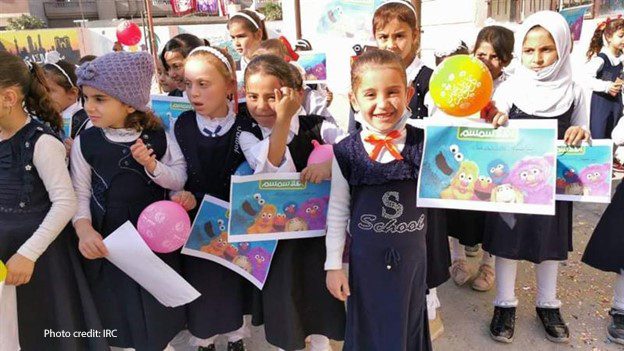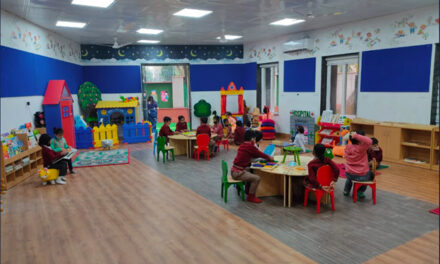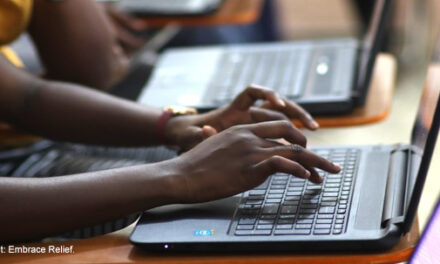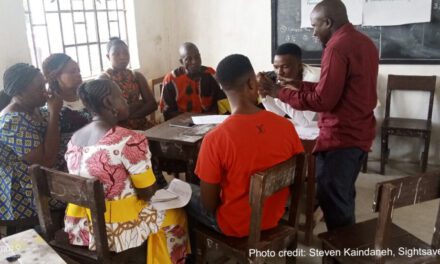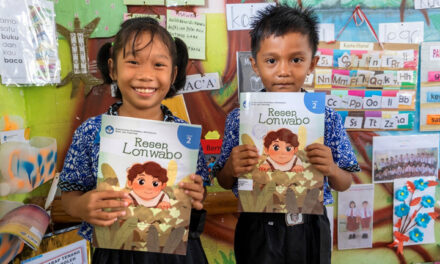This blog was written by Chantale Kallas and Samina Singh, International Rescue Committee. It is based on a presentation given at the 2023 UKFIET conference.
Education is the foundation for success later in life and a critical tool for reducing global equity gaps. Early education and nurturing care in a child’s earliest years (0-8) are critical, when their brains are undergoing some of the most rapid growth they’ll experience during their lives. Research has shown that supportive and playful early education experiences that emphasise social-emotional learning (SEL) alongside numeracy and literacy are a pivotal aspect of that foundation, setting children on a path to becoming happy, healthy, successful adults. However, far too many children are missing out.
Across the Middle East and North Africa, nearly two thirds of children are not enrolled in pre-primary education programs; access is even more limited for the most vulnerable – children affected by conflict, crisis and displacement. And where pre-primary programmes exist, they are often underfunded and under-resourced. When children enter primary school in Grade 1, curricula rarely include the SEL skills development and play-based learning approaches that offer important support. Learning loss from COVID-19 has exacerbated these early education challenges and widened the equity gap. Refugee and host children alike deserve support in this critical window in their development. This is both in the immediate and long term, with strengthened local and national systems that support their healthy development.
This is where Ahlan Simsim seeks to make a difference. Launched in 2018 by Sesame Workshop and the International Rescue Committee, Ahlan Simsim – “Welcome Sesame” in Arabic – integrates educational media with direct services for families, providing transformational early childhood development and playful learning that is now part of daily life for millions of children in the Middle East. Our teams put partnership first, working with local civil society and government ministry partners to address the core needs of young children in each context, co-designing solutions to meet these needs, and transforming the systems that support children for sustaining impact.
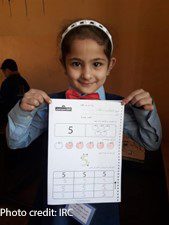 Across MENA, Ahlan Simsim’s work in the education sector takes a collaborative, contextualised approach for co-designed, locally-owned accelerated school readiness (ASR) programmes, a critical step to meeting local and national needs. The programmes focus on successful transition into primary school through activities that facilitate children’s cognitive, social-emotional, linguistic and motor skills development, with particular emphasis on supporting children who have not attended pre-primary education prior. The programmes meet immediate needs of children, influence their earliest experiences in the classroom, and seed longer-term change in education systems through a partnership-first approach, opening doors to contribute to evolving teaching pedagogies and policy-level commitments.
Across MENA, Ahlan Simsim’s work in the education sector takes a collaborative, contextualised approach for co-designed, locally-owned accelerated school readiness (ASR) programmes, a critical step to meeting local and national needs. The programmes focus on successful transition into primary school through activities that facilitate children’s cognitive, social-emotional, linguistic and motor skills development, with particular emphasis on supporting children who have not attended pre-primary education prior. The programmes meet immediate needs of children, influence their earliest experiences in the classroom, and seed longer-term change in education systems through a partnership-first approach, opening doors to contribute to evolving teaching pedagogies and policy-level commitments.
In Jordan, following a national commitment to ensuring universal pre-primary access in 2019, Ahlan Simsim teams initially co-designed an ASR programme with the Ministry of Education to support children not accessing Kindergarten level 2, and delivered during the three weeks prior to start of school. Programme support has evolved over time and led to integration of SEL and play-based learning approaches integrated into teacher professional development for the early grades. In Iraq, less than 9% of children access any kind of pre-primary school, and even with the government’s commitment to early childhood development, per their national strategy released in 2022, this is a tremendous gap to fill. The ASR programme in Iraq, co-designed and integrated into the first two weeks of Grade 1, has been critical to supporting successful entry into primary school. After piloting in 2021, the programme expanded and will scale up nation-wide at the end of 2023.
Monitoring data showed that after a week of the programme, 70% of students had shown improvements in cognitive, social-emotional, language and motor skills. By end of week two, this figure reached 98%, and parents, teachers and administrators have expressed support for the programme. The Ministry has announced their commitment to the programme, deepening support for children with quality SEL-infused early learning. Even in areas of ongoing instability, such as Syria, Ahlan Simsim teams have met children’s needs. In northeast Syria, an ASR programme was co-designed with local authorities of education. This programme includes special emphasis on disability inclusion to address the stigma and high incidence of disability among children in Syria.
We’re learning through these experiences about the power of partnership, of locally-defined needs and co-designed solutions, and of a systems-based approach that centres the needs of the child. In each of these cases, ASR programmes have proven to be a powerful first step in supporting children with quality early learning and setting them on the path to learn, grow and thrive. For one Iraqi mother the programme’s impact was evident immediately: “When my child came home from the first day of school, she was so excited to tell me about the Ahlan Simsim activities… this really helped her enjoy school and the teachers, and she was able to engage with her peers easily. The core of the programme is let children learn while playing.”

